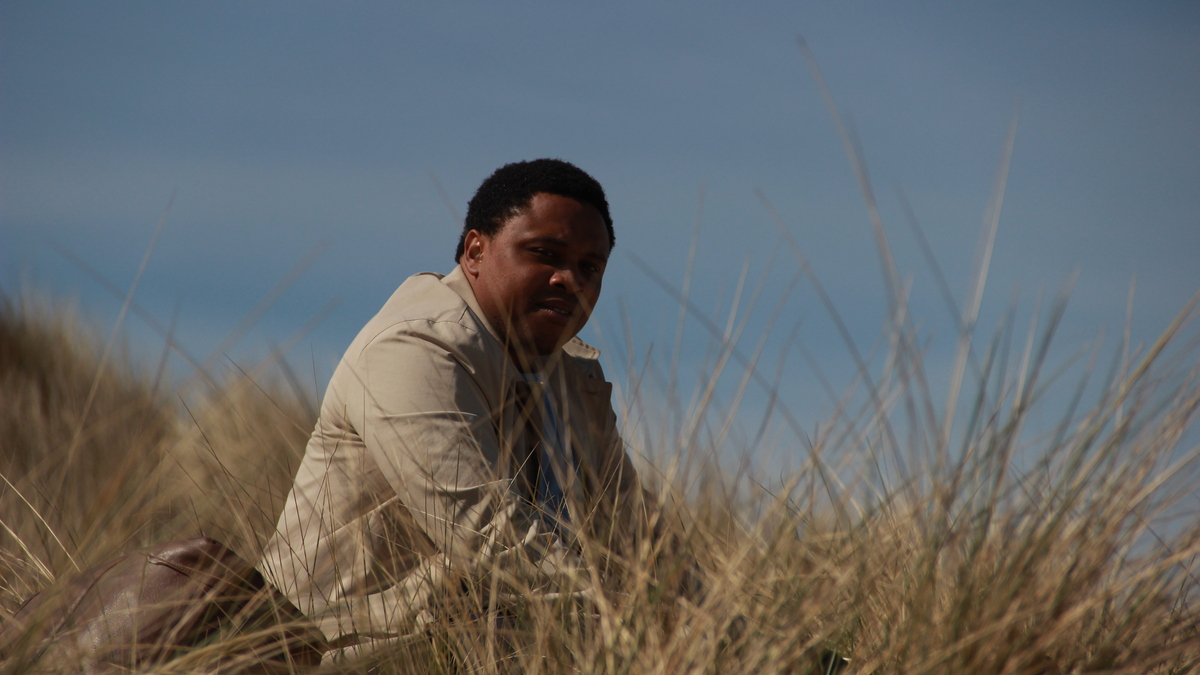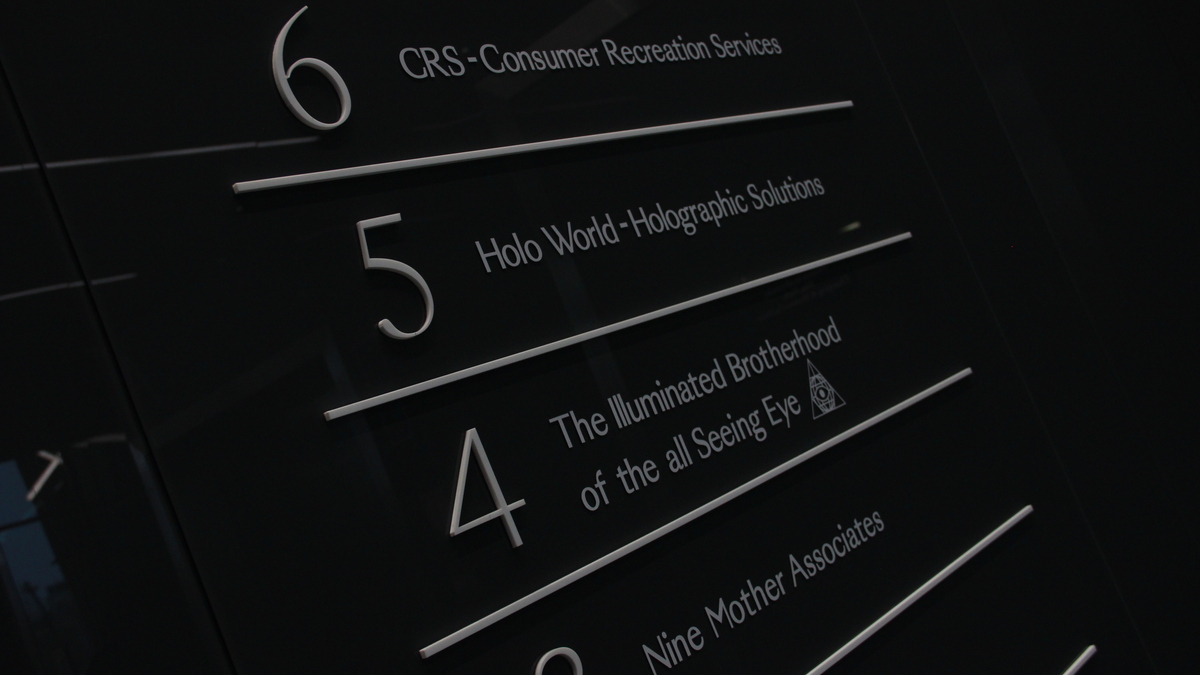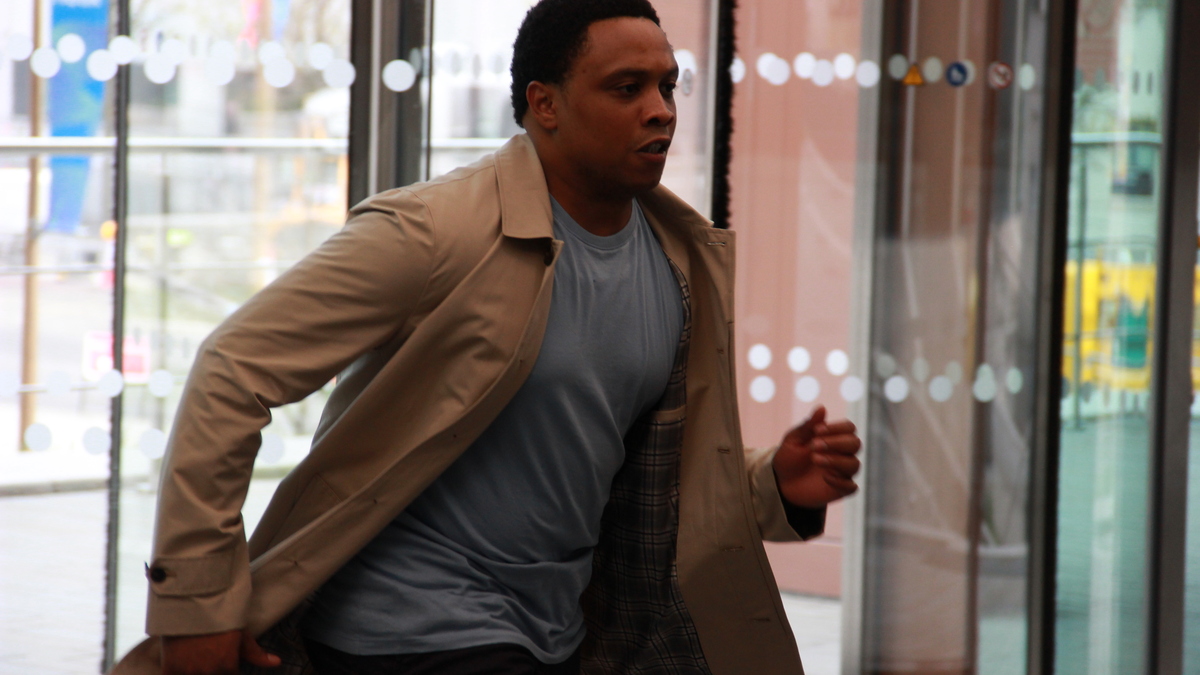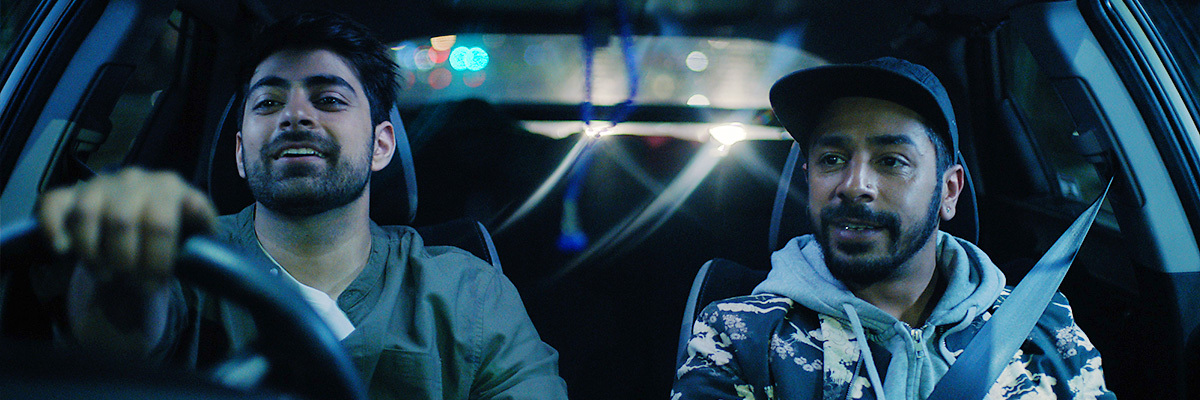Interview: Sean MckennaIn conversation with the writer and director behind Dead Whistle Stop


We spoke with writer-director Sean Mckenna about the making of Dead Whistle Stop, audience reception, conspiracy theories and what’s coming up next!
Following its online release in December, we caught up with director Sean Mckenna to discuss his short film Dead Whistle Stop. Supported by Film Hub North through the BFI NETWORK Short Film Fund, Dead Whistle Stop is a fast-paced, surreal thriller which explores the futility of trying to make sense of a nonsensical world and how doing so makes us overlook the things that really count.
Produced by Paisley Films and narrated by Kate Dickie (The Witch, Game of Thrones), Dead Whistle Stop won the RTS NE Award for Best Short Form and has screened in competition at the BAFTA Qualifying festivals Aesthetica, PÖFF Tallin, Bolton and LA Shorts. It is now available to watch online via Omeleto.

Congratulations on the online launch of Dead Whistle Stop. What reception has it received from audiences so far?
So far the reaction has been really positive with a few people frustrated that it doesn't wrap things up in a clear way. I think with films like this, that are wilfully open ended and absurd, you'll always get some people who love it and some people who hate it. That's totally understandable and expected but I have found it interesting just *how* frustrated some people seem to get by it, like it's a personal affront. But amongst those who do like it there are some who really love it and it's probably for the same reasons that those that hate it, hate it.
Where did the idea for Dead Whistle Stop come from, and how did you develop it?
I’m a big fan of Paul Auster and the idea of someone being sent to find something that isn’t there or that kept shifting while it was being searched for feels like a very ‘Austerian’ idea, so it probably emerged from an appreciation of his slightly surreal and ambiguous early work. There’s a sense in them of a ‘truth’ being told that can’t really be articulated in any other way than it is.
I’m also fascinated by conspiracy theories. Conspiracies serve some quasi-religious function to a lot of people and often seem to promise some revelation or secret but never actually reveal it. I can’t remember whether the chicken came before the egg but the subject of conspiracy theories and that kernel of a story idea fit together well.
There were some alterations from the first draft but, probably because it’s so odd, I wasn’t actually asked to change too much in the development. One change was the title. It was originally called Slow Machine, after a line in a Larkin Poem, but I learned there was another film called that so changed it, after a line in a William Burroughs poem. Turns out I prefer the new title.

There’s a lot of ambiguity about what is really going on, and the meaning behind each event that unfolds. Do you encourage interpretations that differ from your own intentions? Or is there a key message you’re hoping people will take away with them?
I love people interpreting it in their own way. Online it’s had a few people give their interpretations which aren’t what I intended but I’m all for that and feel no sense that my intention is the ‘right’ one. Something I find hard to articulate anyway.
I think there are two reasons for that. One is that something like this invites involvement from the viewer. To make any sense of it the watcher has to fill in the ‘blanks’ with something of themselves so I’d be an arsehole if I got frustrated that they haven’t tapped into what I was intending, whatever that was. The other reason relates back to the question before. I think ideas, often, don’t really come from us. To me it often feels like they’re ‘out there’ and I’m just picking them up and kicking them into some shape. That being the case I don’t feel like the idea is ‘mine’ so I’m not precious about what people take from it. Or don’t as the case may be.
There are several easter eggs hidden throughout the film. How did you go about weaving these into the narrative?
Most were written into the script and a couple I decided to add during the post production process (‘Let’s change the name of the boat. That’ll be easy!’). I wanted the film to have a fractal-like quality. Almost everything that’s mentioned emerges again in some form later, though a lot are easy to miss. When trying to make sure the film came in under 20 minutes this made things hard to cut. If I chopped out this line or that shot, which I could have from a ‘story’ perspective, then, when it popped up later, it would have lost its reference point. Or vice versa. I didn’t let the fact that most people probably wouldn’t notice some of them bother me too much.

Similar to Daniel’s journey, the score also feels quite frantic and builds this sense of chaotic urgency. Can you tell us more about that and how it was developed?
The score was done by Jeremy Bradfield, an irritatingly talented Newcastle musician who I worked with on Future Perfect. He recruited John Pope to play on it too. Jeremy uses a lot of left field instrumentation in his work. He loves his pipes and introduced me to the wonders of the yaybahar or space cello which worked its way in there (google it, it’s an incredible thing). I think his work is often experimental but enjoyable and that’s what I try to do with my films, so it seems to work.
It’s developed with me sending him lots of reference tracks then he riffs off that. I’m always keen for it to be ‘him’ though. ‘A bit like this, but you’ is how the direction usually goes.
I think the music is integral to both films. It’s an example of where I, as director, get the credit but so much of it working is down to his music.
In both Dead Whistle Stop and your previous film Future Perfect, we’re led by an ‘all-knowing’ narrator. Can you tell us about your reasoning behind this creative decision? Is this a style we can expect to see in future work?
I actually wrote Dead Whistle Stop before Future Perfect and one aspect I liked the idea of, was the protagonist getting into a conflict with the narrator. It played into the whole conspiracy idea that ‘someone’ was a controller behind the curtain. A Wizard of Oz. So, having the narrator be prominent was important to that.
With Future Perfect it was a little different. I had a couple of themes I wanted to cover and the narration just sort of ‘came along’ and I wrote it down. I liked the narration and it was quite an epic story to tell in five minutes so a narration was important to that. The writing rules gods often say to avoid narration but I think short films can be more forgiving on that front. But in answer to the last part, no. I want to avoid narration in what I do next.
Are you working on any other projects at the moment?
I’ve just finished a music video for the musician Dextro so hopefully that will be out soon. I also have a few narrative (though characteristically odd) projects I’m working on, a couple of features and a few short scripts. I’ve also been working with a couple of other people on developing a TV idea – a sort of folk horror, mystery story set in Yorkshire. As an art form film has the real disadvantage of needing a bit of cash (or a lot of cash) to make anything so while I go through the lengthy process of trying to develop and get attention for feature ideas I’m trying to pare down one of my shorts to something shootable on a shoestring that I can get done soon.
Watch Dead Whistle Stop
About Sean Mckenna
Sean Mckenna likes to make funny, dark and often surreal films. Prior to Dead Whistle Stop, Mckenna completed the short Future Perfect which was commissioned by Channel 4’s Random Acts and narrated by Julian Barratt (The Mighty Boosh, Flowers).
It premiered in competition at Encounters Film Festival and was selected as Short of the week, following its festival run which included screenings at British Shorts Berlin, Aesthetica Short Film Festival and Reykjavik Film Festival, where it won best experimental short.
Mckenna was also one third of Hot Gulp writing, directing and performing short form comedy for TV and online including writing a TV pilot for Bonefide Films and Channel 4 titled Storydweller starring Steve Oram (End of the F***ing World) which went on to win best sitcom pitch at LOCO.
He previously took part in a comedy feature development programme with Screen Yorkshire and in funded development with Northern Film & Media on comedy sitcom Sea Bastards. In 2020, he was commissioned to direct a short comedy for Channel 4 online (1.7m views). Most recently, he was selected for the Screen Yorkshire Talent Lab: Flex where he is part of a newly formed team developing a mystery/drama TV series - All Souls. In 2023, he was selected for BAFTA’s Connect Programme. When not making his own work, Mckenna works as a freelance filmmaker supporting young people and communities to develop their filmmaking skills. He works with a variety of organisations including New Writing North and Beacon Films.







